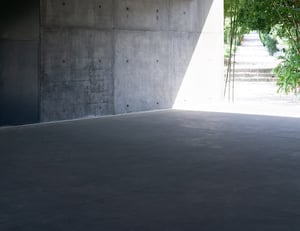 Concrete floors are bound to crack over time. They cure, and then they settle, sometimes resulting in a cracked surface or slab.
Concrete floors are bound to crack over time. They cure, and then they settle, sometimes resulting in a cracked surface or slab.
Once a crack exists, it can be worsened by other routine activities and common events. Things like moisture seeping into the cracks, exposure to oils or chemicals that contaminate or corrode the floor, poor cleaning due to existing cracks, and vehicles driving over the cracked surfaces will all aggravate cracks in a concrete floor.
There are many reasons why concrete floors crack. The important thing is that when it happens, you know what you should and should not do.
Is that a crack in the floor or a joint?
Let's clarify one thing: Cracks in a floor and joints in a floor are two different things. Cracks appear in concrete as a result of curing, aging, abuse, and sometimes unseen substrate issues. Joints, on the other hand, are there by design to control cracking, isolate slab movement, or formed with new slab pours.
How do you repair a cracked concrete floor?
A simple solution for cracked concrete floors is the use of control joints, but only during the initial slab pour. Control joints help concrete floors to crack along straight lines.
Some other repair solutions include caulks and specialized fillers. Caulks and fillers range from rigid to flexible properties allowing it to expand and contract or fill the void.
Depending on the type of activity your floor endures and the nature of the cracks themselves, we may recommend a specialized filler. Facilities that deal with corrosive chemicals or reoccurring cracking usually require specialized fillers, whereas high-traffic facilities can usually get away with a filler designed to simply restore strength and even out the surface.
Sometimes the right repair solution for bad cracks and broken joints in concrete floors requires a deeper repair, not just a surface fix. Unless handled properly, these damages will only grow over time.
How do you NOT repair a cracked concrete floor?
Many people think that if their concrete floor cracks, they can just cover it with an epoxy coating... right?
Maybe… That depends on the current condition of the crack as well as some of the conditions it is (or will be) subjected to as previously mentioned.
Just over coating with epoxy may not be enough to cover the crack or abate the issue. We have witnessed owners and contractors trying to coat over cracks to hide or fix the issue only to have the coating seep through the crack before drying, and never solving the issue.
Contrary to what you may have found online, another method you should not use to repair your cracked concrete is applying standard over-the-counter caulk. There are specialty caulks in the industry we use, but you will not find it in the “big box stores."
Lastly, it's best not to try to repair your concrete floor on your own. Call in a flooring professional to at least give you a consultation. Not sure who to call? Contact CPC. We'd love to take a look at your concrete floor and recommend next steps.

